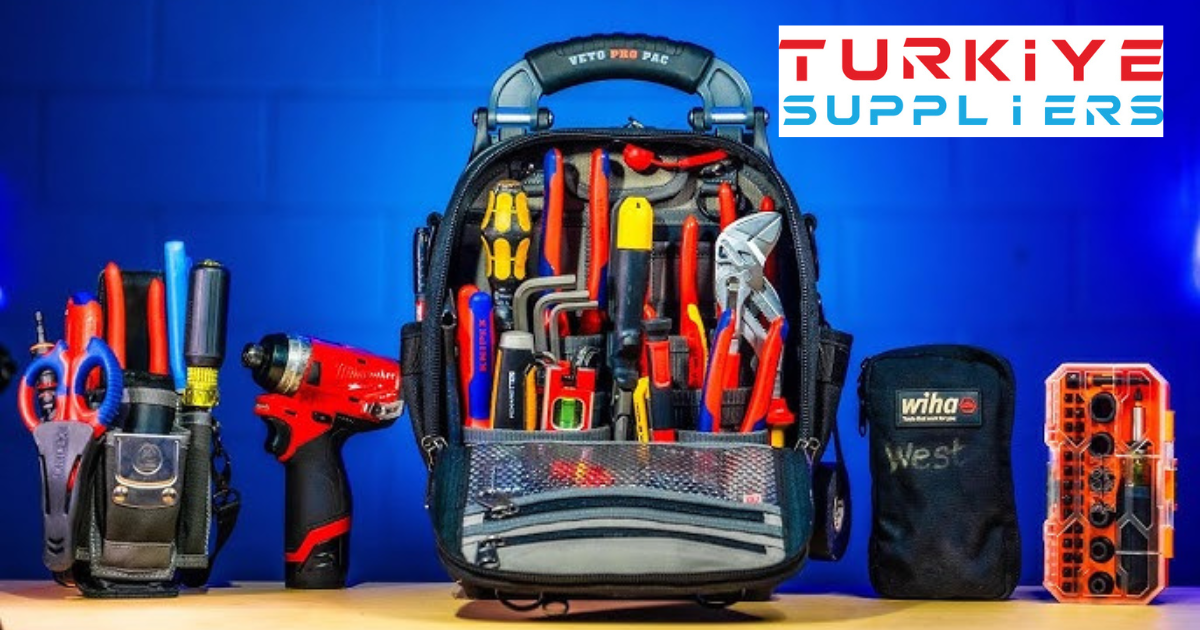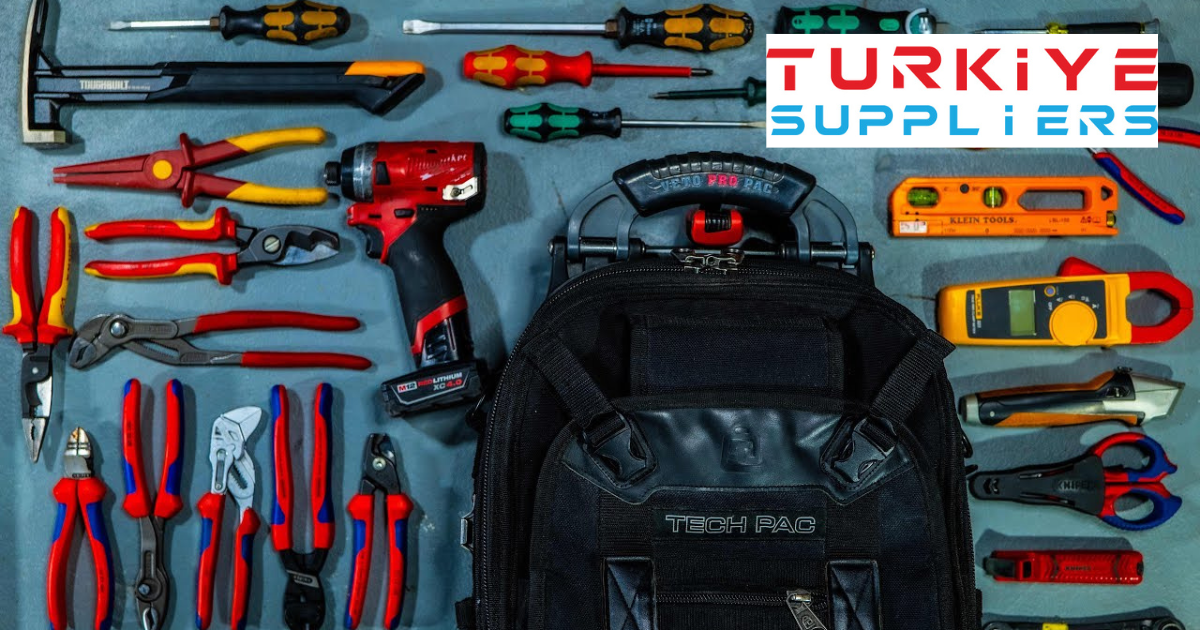An electrical tools bag is essential for both professional electricians and DIY enthusiasts. Having the right tool bag not only helps keep your tools organized but also improves productivity on the job site. A well-structured and sturdy tool bag ensures you have quick access to your equipment, which can be the difference between a smooth project and a frustrating one. In this article, we will explore the features of the best electrical tool bags, the must-have tools every electrician should carry, and how to choose the ideal bag for your specific needs.
Why Every Electrician Needs a High-Quality Electrical Tool Bag
An electrical tool bag serves a dual purpose: organization and portability. Electricians often work in environments that require moving from one place to another frequently. Having a compact and efficient tool bag minimizes downtime and ensures that all your essential tools are at your fingertips. Here’s why you need a quality electrical tool bag:
- Tool Protection: Electrical tools can be expensive. A padded and reinforced tool bag helps protect delicate instruments like multimeters, wire testers, and crimpers from impact damage.
- Increased Efficiency: Organized tool bags prevent unnecessary digging and searching, saving time on the job.
- Ergonomic Design: A well-designed electrical tool bag reduces strain on your back and shoulders, allowing you to carry heavy loads comfortably.
- Durability: High-quality materials such as water-resistant fabrics, reinforced stitching, and heavy-duty zippers extend the lifespan of your tool bag, even in tough jobsite conditions.

Why Every Electrician Needs a High-Quality Electrical Tool Bag
you can read more about: Power cable: Power Cable from Turkey
Key Features to Look for in an Electrical Tools Bag
When selecting an electrical tool bag, several features can enhance its usability and durability. Below are some of the critical characteristics to consider:
1. Number of Compartments
The more compartments and pockets your tool bag has, the better. A well-designed tool bag offers various pockets to accommodate tools of different sizes. Ensure the bag includes:
- Exterior pockets for quick access to frequently used tools like pliers and screwdrivers.
- Interior compartments for more sensitive equipment such as voltage testers and circuit finders.
2. Material Quality
Durability is crucial for an electrician’s tool bag. Look for materials like:
- Ballistic nylon or polyester, which offer excellent wear resistance and are water-resistant.
- Reinforced bottoms, often made of hard plastic or rubber, prevent wear from rough surfaces.
A tool bag with water-resistant materials also ensures your electrical tools stay dry in case of rain or accidental spills.
3. Weight and Size
Your tool bag should be lightweight yet sturdy. The weight of an empty bag should not add too much to the overall load of your tools. Choose a size that fits all your essential tools without being overly bulky. Backpack-style tool bags offer a hands-free option for electricians who need to climb ladders or carry additional equipment.
4. Comfortable Straps and Handles
Padded shoulder straps or reinforced handles add comfort when carrying heavy loads. Some models also come with adjustable straps to distribute weight evenly across your body, reducing fatigue over long periods of work.
5. Accessibility
Accessibility is another critical factor. Tool bags with wide openings and quick-access compartments make it easier to retrieve tools without having to take everything out. Some bags even come with built-in organizers or clear compartments to store smaller items like screws, nuts, and electrical tape.

Key Features to Look for in an Electrical Tools Bag
Top Tools Every Electrician Should Have in Their Tool Bag
While the type of tools carried by electricians varies based on the specific job, there are several fundamental tools that should always be present in a well-stocked electrical tool bag.
1. Screwdrivers and Nut Drivers
Every electrician needs a reliable set of screwdrivers and nut drivers. These tools are essential for tasks like removing outlet covers or tightening connections. Ensure you carry both flathead and Phillips-head screwdrivers, as both are commonly used in electrical work.
2. Pliers
Pliers come in various types, and every electrician should have multiple pairs in their bag, including:
- Needle-nose pliers for tight spaces and intricate wirework.
- Linesman pliers for cutting and twisting wires.
- Wire strippers for removing insulation from wires.
3. Voltage Tester and Multimeter
Safety is paramount in electrical work. A voltage tester allows electricians to verify if a circuit is live, while a multimeter measures voltage, current, and resistance. These tools help identify potentially hazardous situations and ensure circuits are properly powered.
4. Wire Cutters and Crimpers
For tasks involving wiring, a reliable pair of wire cutters and crimpers is essential. These tools ensure clean cuts and strong connections, helping you maintain the quality and safety of your electrical installations.
5. Measuring Tape and Level
Proper measurements are critical for electrical installations, whether it’s determining the correct length of conduit or ensuring panels are level. A measuring tape and level are indispensable for achieving accuracy in every task.
6. Electrical Tape and Cable Ties
While small, electrical tape and cable ties are crucial tools for bundling and organizing wires. Electrical tape also provides insulation for exposed wires, ensuring a safer working environment.
you can read more about: electrical lighting: electrical lighting from turkey
Choosing the Best Electrical Tool Bag for Your Needs
Selecting the right electrical tool bag depends on your specific needs and the type of electrical work you perform. Below are some tips to guide your decision:
1. Assess the Size of Your Tool Collection
If you have a large number of tools, a large tool backpack may be more suitable. For electricians who require a more portable solution, a compact shoulder bag or tote might suffice. Always ensure that your bag has enough compartments to accommodate the variety of tools you use.
2. Consider Your Work Environment
Different environments demand different types of tool bags. For outdoor work, a waterproof or weather-resistant bag is essential. If you often work at heights or need to be mobile, opt for a backpack tool bag with padded straps for increased comfort.
3. Durability and Warranty
Investing in a durable tool bag can save money in the long run. Brands that offer lifetime warranties or at least several years of coverage indicate confidence in the product’s longevity. Check user reviews to verify the tool bag’s durability under real-world conditions.
4. Budget Considerations
Tool bags come in a range of prices, from budget-friendly options to premium models. While it’s tempting to go for the cheaper option, remember that a durable, high-quality tool bag can last for years, offering better value in the long run.
A well-designed and sturdy electrical tool bag is a critical part of every electrician’s toolkit. It provides not only organization but also protection for expensive equipment. By selecting the right tool bag based on material quality, comfort, size, and specific features, you can significantly improve your efficiency on the job.
